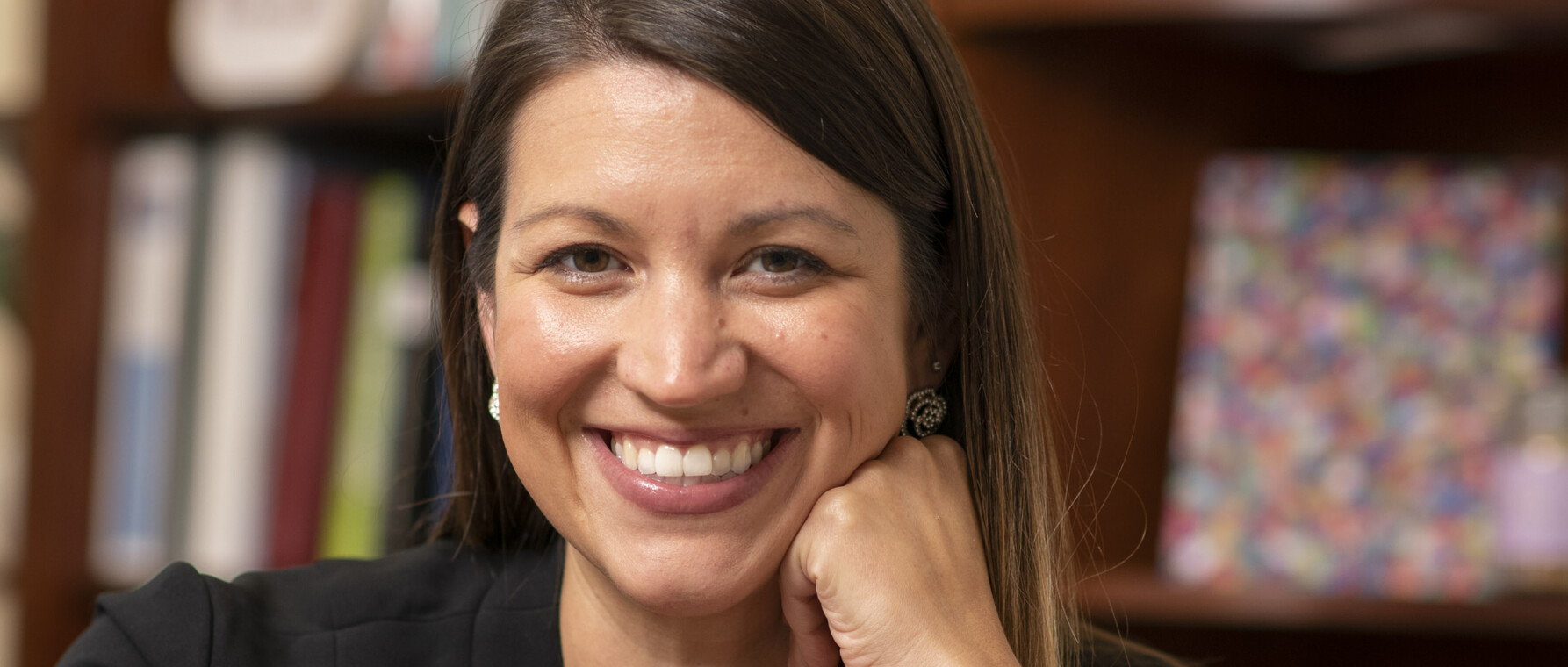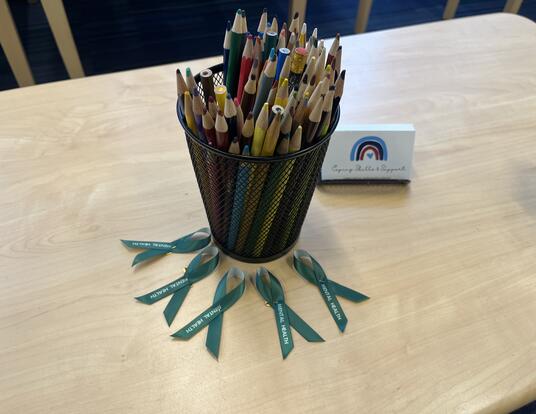B-2 B-Well: Coaching You to Academic Success

With the start of a new term, it’s easy to feel overwhelmed or unsure how to start, especially with academic goals. Deadlines loom. You’re anxious to hit the milestones in your research. You can write that whole chapter in a week, right? Ummm…right?
Luckily, GSAS students have great partners like Dorothy Bisbee and her colleagues at the Academic Resource Center (ARC) to support them in these moments. Dorothy is one of the ARC’s academic coaches focused on graduate students like YOU. I spoke with her recently about her role and the many services the ARC offers. Wherever you may be in your academic journey, Dorothy and the ARC are here to help you keep moving forward, making progress, and reaching your goals!
Danielle Farrell: Can you describe what it means to be an academic coach?
Dorothy Bisbee: The term “academic coaching” has no official definition, and I think it’s probably evolving in different ways at different schools. Here at Harvard, I see it as a combination of life coaching and consulting.
The “coaching” part includes both coach and student bringing their full energy to each coaching session, working as equals. Academic coaches draw heavily on students’ own ideas and empower the student to make all the final choices.
The “life” part includes helping students to balance their time and maximize their well-being. This relates to things like time management, prioritizing, and self-regulation. Academic coaches at Harvard are not clinical psychologists, so they don’t offer diagnoses or therapy. That doesn’t mean emotions don’t come to the surface. We do have tissue boxes in our offices; sometimes students have a good cry, and we don’t mind that! However, our focus is on changing behaviors, structures, and mindsets to improve students’ ability to make the best use of their time at Harvard.
The “consulting” part is where we share suggestions, resources, and strategies based on research and informed by what has worked for other students. It’s a creative synthesis: we combine what we know works for some with what could work for an individual student and help the student come up with their own ideas. Often, a student will leave a coaching session agreeing to try a couple of new strategies and with the option to make another appointment to report back, so the student and coach can adjust as needed.
Working with an academic coach is different from working with an academic advisor who might need to be more directive. Academic advisors are very familiar with the curriculum and administrative rules and know what the student must do to move forward in their program. So, they might say, “you need to take X course” or “you need to do Y to form your dissertation committee.” If a student needs help or advice outside our areas of expertise, we try to put them in touch with someone at Harvard who can provide it.
Farrell: What types of coaches are there at the ARC?
Bisbee: There really is no formal “type” of ARC coach. All of our coaches can work with any GSAS or Harvard College student. Each coach does have a targeted area of expertise and focus—mine is graduate student programming. All of our coaches have experience with graduate students, many years of experience in coaching or related fields, and advanced degrees.
Our backgrounds, interests, and deepest areas of expertise vary. Students can look at our bios on the ARC website if they are looking for someone who has particular characteristics or interests. Finally, as individuals, coaches can vary a bit in their approaches. Some may be more directive, some more facilitative. Some are more concrete, others more abstract. If a student doesn’t click with a coach, it is fine to schedule the next appointment with a different coach.
Farrell: How often do you see graduate students?
Bisbee: One-to-three times spread out over several weeks or the semester is common. Some students need just one visit for a tip or a “tune-up.” Some students who need more accountability come as often as once a week or every other week for a while. I encourage students who want regular check-ins to join an accountability group.
Farrell: What can a graduate student expect when coming into the ARC for an appointment?
Bisbee: If the student is new to ARC academic coaching, the coach will describe what they do and how the session will work. The coach will then identify the student’s needs. The coach might ask “what brought you to coaching?” or “when you signed up for coaching, you mentioned X. Can you tell me a little more about that?”
During the body of the coaching session, the coach will ask the student questions and facilitate an exploration of steps and strategies that could help them. Smart strategies often come from the students themselves, but the coaches always have suggestions based on what research shows is effective and what they know has worked for others. At the end, the coach will review next steps with the student. Often, the student will go away with “homework”—one or more things to try for a week or two before checking in again.
Most sessions are 45 minutes, but they can be shorter if students prefer. I usually spend the first five minutes identifying what the student wants to work on and setting an agenda and the last five discussing next steps.
Farrell: What are some common themes/problems you see many students struggling with?
Bisbee: The most common thing that brings GSAS students to coaching is a need to get work done on a prospectus, dissertation, or another long-term project when there is a lack of structure. Early-stage grad students and those taking classes may come for help with adjusting to being a student at Harvard, juggling life and courses, and making sure they are doing the right things. Sometimes GSAS students who are among the first in their families to go to college or grad school or who feel somehow different from their peers come to coaching to talk this through. We love to help these students to navigate resources and the Harvard culture.
Some students come because they are simply overwhelmed and don’t know where to start. Time management and life balance, including getting enough sleep, scheduling time for academic work, committing to going to the library or the gym, and things like that can be complicated. We help with executive functions or self-regulation skills like focus, getting started, prioritizing, managing energy, and staying motivated.
Farrell: What are some tips and tricks that all students could benefit from around time management, productivity, or motivation?
Bisbee: Make and keep a regular daily schedule that includes work blocks, repeating classes and appointments, meals, breaks, exercise, free time, etc. You will be much more productive and efficient if you are leading a balanced life!
Don’t try to go it alone! There is a wide web of resources here at Harvard for GSAS students and you should take advantage of them.
Farrell: What services do you have that students might not know about?
Bisbee: We have great online resources. There are tips on forming your own accountability group or finding one on the ARC website as well as tips on time management, productivity, and more. The ARC offers its own coach-facilitated accountability groups and workshops. Once planned, these are listed on GSAS Engage (make sure to log in, and page down if needed), and the ARC Scheduler. For GSAS students whose first language is not English, the ARC offers the English Language Conversation Program. Interested students should visit the ARC website for information on policies, eligibility, and funding.
ARC coaches can visit orientations, proseminars, and other classes or events to tell students about what we offer and to share some basic tips. The ARC tries to keep abreast of students’ needs, and anyone with an idea for a workshop or program is encouraged to reach out at academicresourcecenter@harvard.edu.
Remember to be kind to and take good care of yourselves and one another. Visit B-2 in person or virtually and, above all, B-Well!
Photo by Tony Rinaldo
Get the Latest Updates
Join Our Newsletter
Subscribe to Colloquy Podcast
Simplecast





